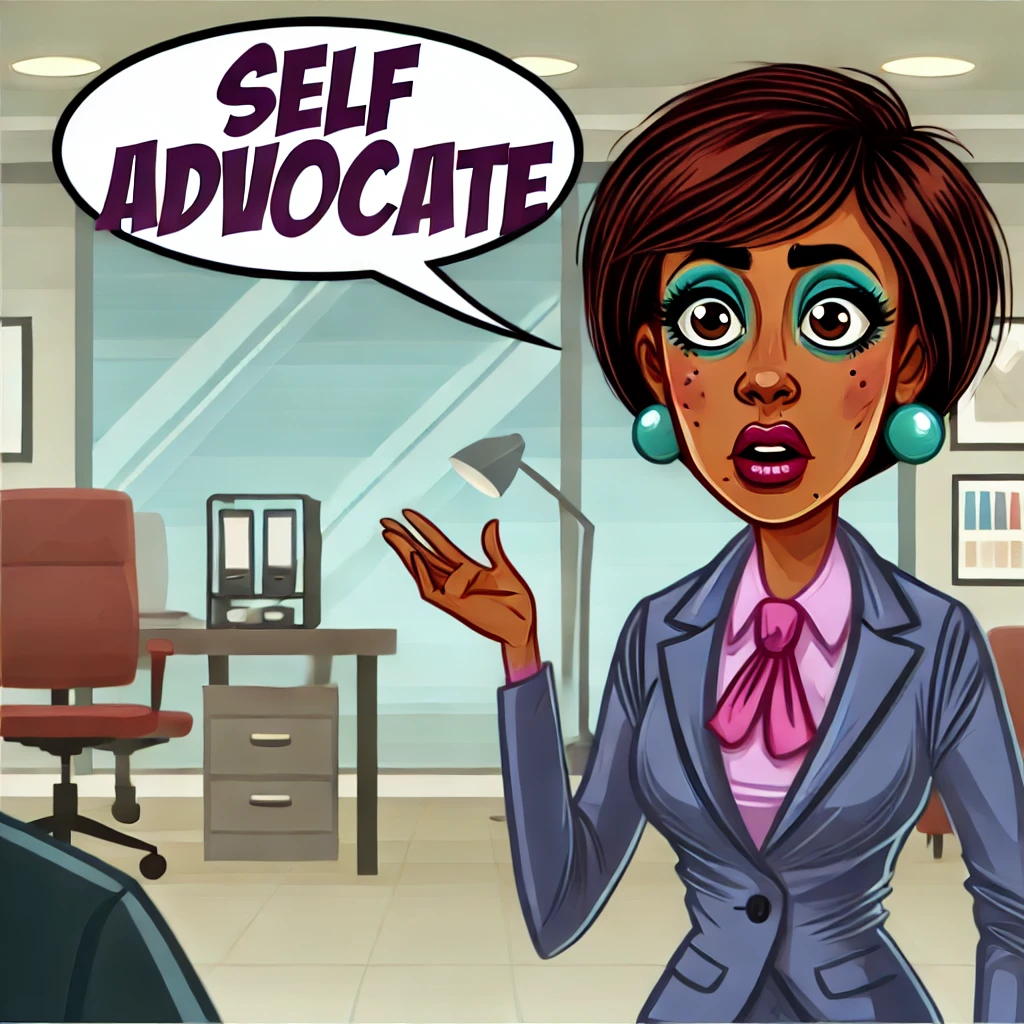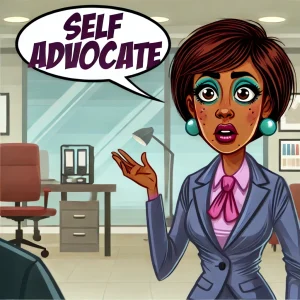
Reducing ADHD Workplace Anxiety as a Neurodivergent Woman: A Guide to Self-Advocacy and Thriving at Work
Introduction
ADHD workplace anxiety is a problem for many of my clients. Is it something you struggle with, too? Whether it’s looming deadlines or unclear instructions, the workplace can quickly feel like a daily battle for your mental health. For many of us, anxiety stems from challenges like emotional dysregulation, executive functioning difficulties, and the constant fear of not meeting expectations. Add the pressure of masking, people-pleasing, and struggling to ask for accommodations, and it’s no wonder work can feel overwhelming.
This guide provides practical strategies for reducing ADHD workplace anxiety, even if you don’t have formal accommodations in place. It’s all about advocating for yourself and shaping a work environment where you can thrive. Instead of trying to fit into neurotypical expectations, you’ll learn how to meet your unique needs and succeed on your terms.

Understanding ADHD Workplace Anxiety as a Neurodivergent Woman
Workplace anxiety isn’t just about deadlines or presentations—it’s about the fear of being misunderstood, overlooked, or judged for how your brain works. The pressures of masking (hiding your neurodivergent traits to fit in), people-pleasing, and avoiding conflict often lead to burnout and emotional exhaustion.
Common Triggers of ADHD Workplace Anxiety:
- Unclear Expectations: Have you ever been handed a project but felt lost because no one clarified what "done" looks like? This uncertainty can spiral into anxiety, leaving you questioning whether you’re meeting expectations.
- Overwhelming Workload: It’s not just about feeling busy—it’s that endless to-do list that keeps you up at night, where prioritizing feels like juggling 20 balls at once, and you’re not sure which will drop first.
- Fear of Judgment: Many neurodivergent women worry about how they’re perceived—whether they’re seen as "too emotional," "disorganized," or "not focused enough."
- Avoidance of Conflict: Asking for accommodations or pushing back on unrealistic deadlines can be anxiety-inducing, leading to avoidance and, ultimately, more stress.
Reframing ADHD Workplace Anxiety as a Signal for Advocacy
For neurodivergent women, ADHD workplace anxiety often arises when we’re pushing ourselves too hard, masking our true selves, or not advocating for the support we need. When anxiety creeps in, it's a sign that your needs aren’t being met. Instead of ignoring it, try to see it as an opportunity to advocate for yourself.
When that anxiety shows up, pause. Don’t push through it. Ask yourself: What’s missing? Do you need more explicit instructions, more time, or a quieter workspace?
Practical Strategies to Reduce ADHD Workplace Anxiety
1. Ask for Clear Expectations
Reducing ADHD workplace anxiety starts with clarifying expectations. Clear instructions help you avoid second-guessing and stay on track. Even if you don’t have formal accommodations, asking for clarity can be straightforward. For example, if something feels unclear, you could request written instructions like:
“Just to ensure I’m on the right track, could you send over the main points or next steps in an email?”
This frames the request as a regular part of a collaboration and helps you get the clarity you need without it seeming like a special request.
2. Learn to Set Boundaries
If you're like many ADHD women, you might tend to take on too much, which often leads to overwhelm and anxiety, especially at work. Setting boundaries isn’t about saying "no" to everything—it’s about being effective in your work. For example, instead of immediately agreeing to extra tasks, try:
“I want to make sure I give this project the attention it deserves. Can we discuss the timeline to ensure I meet the deadlines effectively?”
This shows your commitment to delivering quality work while protecting your mental health. You create a healthy balance without pushing against expectations by asking for input on priorities.
3. Ask for Informal Work Adjustments
You don’t need formal accommodations to ask for what you need. Simple adjustments like using noise-canceling headphones, asking for more frequent check-ins, or requesting flexible hours can reduce ADHD workplace anxiety. For example, you might say:
“I’ve found that regular check-ins really help me stay on track—would it be possible to touch base mid-week to ensure everything’s on target?”
This frames the request as a productivity boost, making it more likely to be accepted as a reasonable adjustment rather than a formal accommodation.
4. Break Down Tasks Into Manageable Steps
To break down overwhelming tasks:
- Divide large tasks into smaller chunks with specific mini-deadlines.
- Visual tools like task lists or project management apps organize these steps.
- Set timers to focus on one task at a time, with short breaks in between.
By breaking tasks into manageable steps, you can reduce the feeling of overwhelm and stay focused on making steady progress.
5. Incorporate Self-Care at Work
Small moments of self-care throughout the day can reduce the build-up of anxiety. Whether it’s stepping away for a sensory break, deep breathing exercises, or a quick walk outside, these minor resets help manage stress before it becomes overwhelming.
Building Self-Trust and Reducing ADHD Workplace Anxiety Over Time
Advocating for yourself is hard, especially when you’ve been conditioned to believe that your needs are "too much" or that you should just cope like everyone else. But each time you advocate—whether for a quieter workspace or more explicit instructions—you build self-trust and reduce workplace anxiety over time.
Start small. Each time you advocate for your needs—whether it’s asking for clearer instructions or taking a sensory break—you’re reinforcing your ability to manage your ADHD workplace anxiety. Small wins build up over time, and soon enough, you'll notice your anxiety lessen and your workplace becoming a better fit for you.
Conclusion: Advocacy is Hard, But You’re Worth It
Advocating for yourself isn’t easy. It takes practice, persistence, and a whole lot of self-compassion. But here’s the thing—you deserve it. Each time you stand up for your needs, you create a work environment supporting your success.
Remember, you’ve already overcome so much to get here. So keep going. You’re worth every step.



